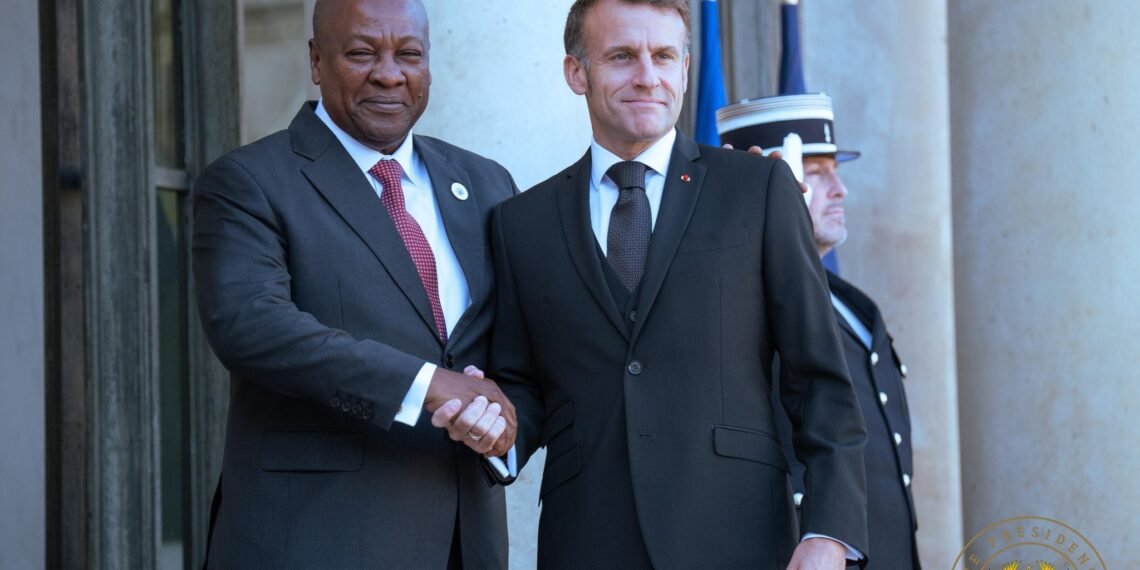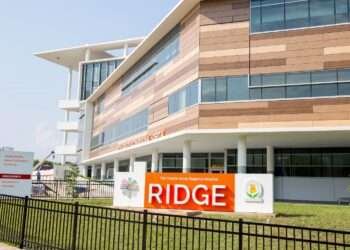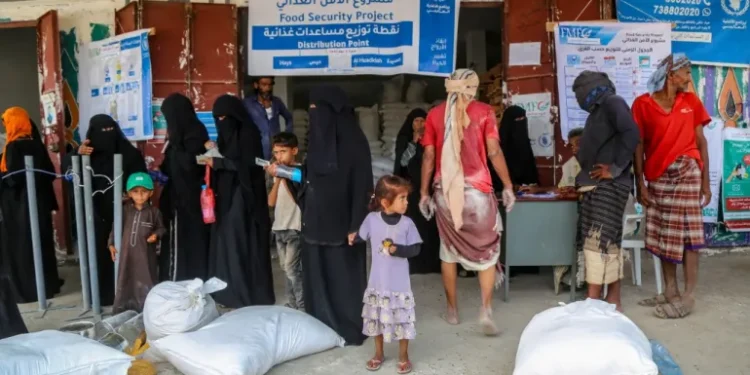At the 2025 Paris Peace Forum, President John Dramani Mahama of Ghana and French President Emmanuel Macron held far-reaching bilateral talks aimed at strengthening cooperation between their two nations, with a focus on security, economic development, and regional stability.
The meeting, held at the Élysée Palace in France, underscored the growing partnership between Accra and Paris as both countries seek to address shared challenges in West Africa and beyond.
The encounter began on a reflective note as President Macron extended condolences to President Mahama and the people of Ghana following the recent passing of former First Lady Nana Konadu Agyeman-Rawlings.
The French leader paid tribute to her as “a formidable figure of Ghanaian and African public life whose contributions to democracy and women’s empowerment will not be forgotten.”
In their discussions, both Presidents expressed satisfaction with the Paris Peace Initiative and reaffirmed their commitment to promoting peace, stability, and inclusive development in Africa.
President Mahama commended President Macron’s efforts to maintain dialogue between African nations and their European partners at a time of growing geopolitical tensions.
A central theme of the meeting was maritime security. President Mahama raised concerns about the increasing threat of piracy in the Gulf of Guinea, noting its impact on trade, energy security, and the livelihoods of coastal communities. He appealed for France’s support in strengthening Ghana’s naval capabilities and surveillance systems to protect its maritime borders.
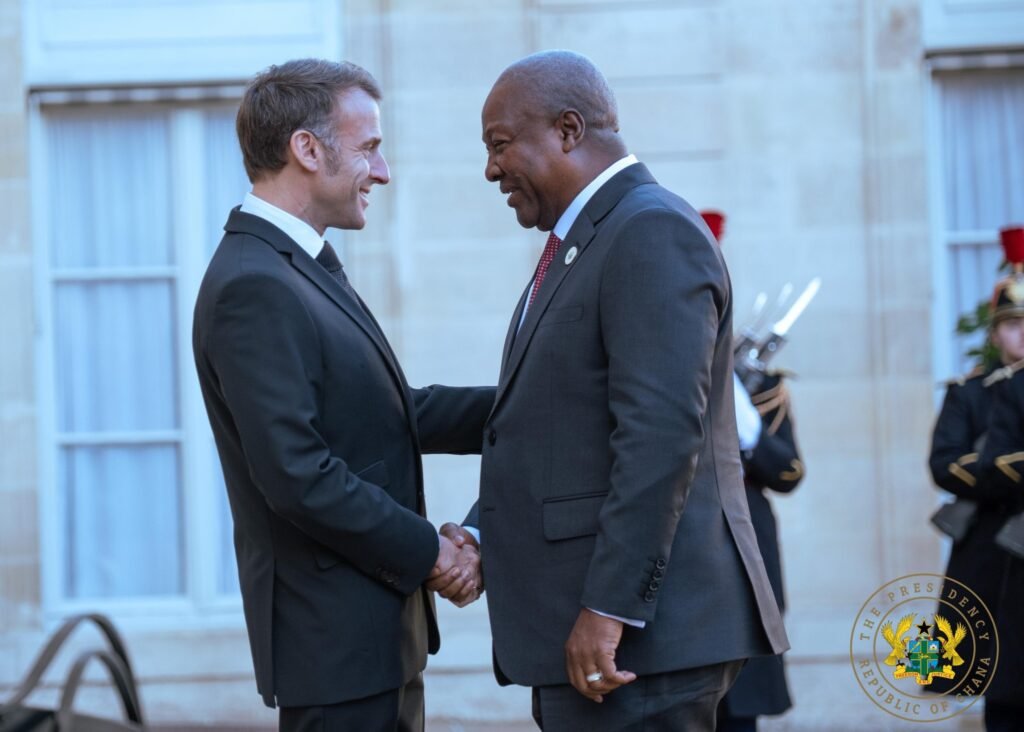
President Macron, in response, reaffirmed France’s readiness to collaborate through intelligence sharing, joint exercises, and capacity-building programmes for Ghana’s maritime security agencies.
Economic Cooperation
Economic cooperation also featured prominently in the talks. The two leaders reviewed a pending French concessionary loan for Ghana’s health sector, currently awaiting parliamentary approval in Accra.
President Mahama expressed appreciation for France’s continued assistance in health infrastructure development, but also urged President Macron to use his influence with the International Monetary Fund to help facilitate Ghana’s access to the facility through the French Development Bank.
“Ghana’s macroeconomic outlook has improved considerably. Our debt-to-GDP ratio is now within sustainable levels, and we are committed to maintaining fiscal discipline”.
President John Dramani Mahama
In his capacity as the African Union’s Champion of African Financial Institutions, President Mahama further called for closer collaboration between African nations and France to renegotiate loan agreements and explore financing models that reduce interest rates for infrastructure projects. He emphasized that Africa’s sustainable development depended on fairer credit terms and greater autonomy in financial decision-making.
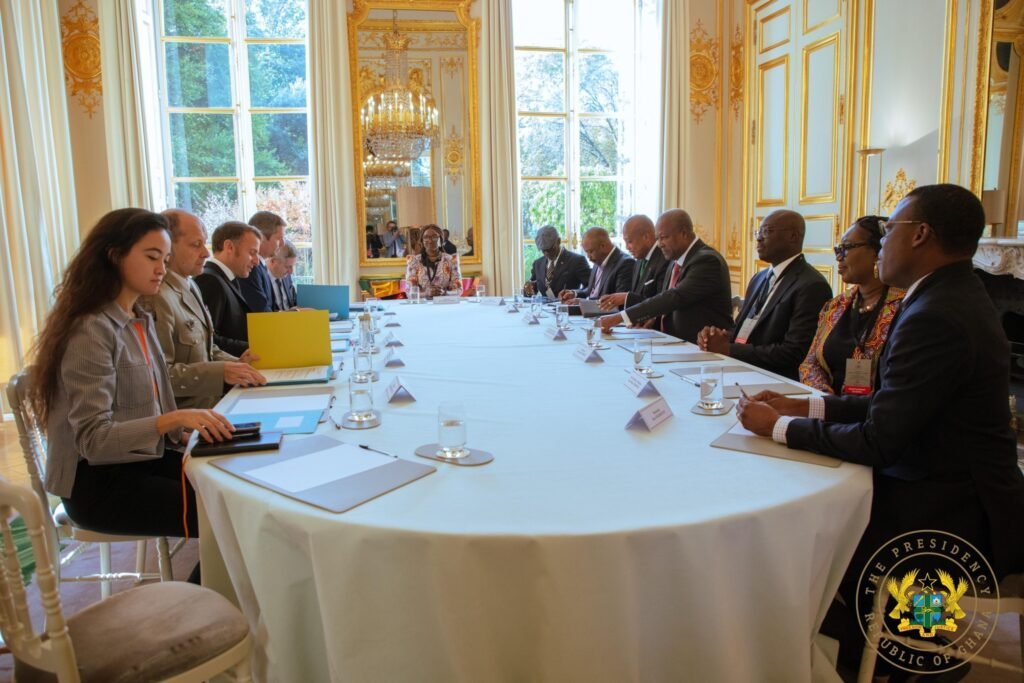
President Mahama also highlighted Ghana’s role as the host of the African Continental Free Trade Area (AfCFTA) Secretariat and the country’s commitment to advancing intra-African trade.
He stressed the need for enhanced road and transport infrastructure to connect African markets, arguing that improved logistics and border systems were key to realising the full benefits of AfCFTA.
Education and Innovation
Turning to education and innovation, President Mahama spoke about Ghana’s One Million Coders Program, an ambitious initiative designed to equip young people with digital skills.
“We have already registered over 200,000 students under this programme. With the right partnerships, we can empower more young Africans to participate in the global digital economy”.
President John Dramani Mahama
He further requested French support in training more French language teachers, emphasizing the importance of multilingual education in preparing Ghanaian students for broader opportunities within West Africa and Francophone markets. President Macron welcomed Ghana’s efforts in digital transformation and proposed avenues for collaboration.
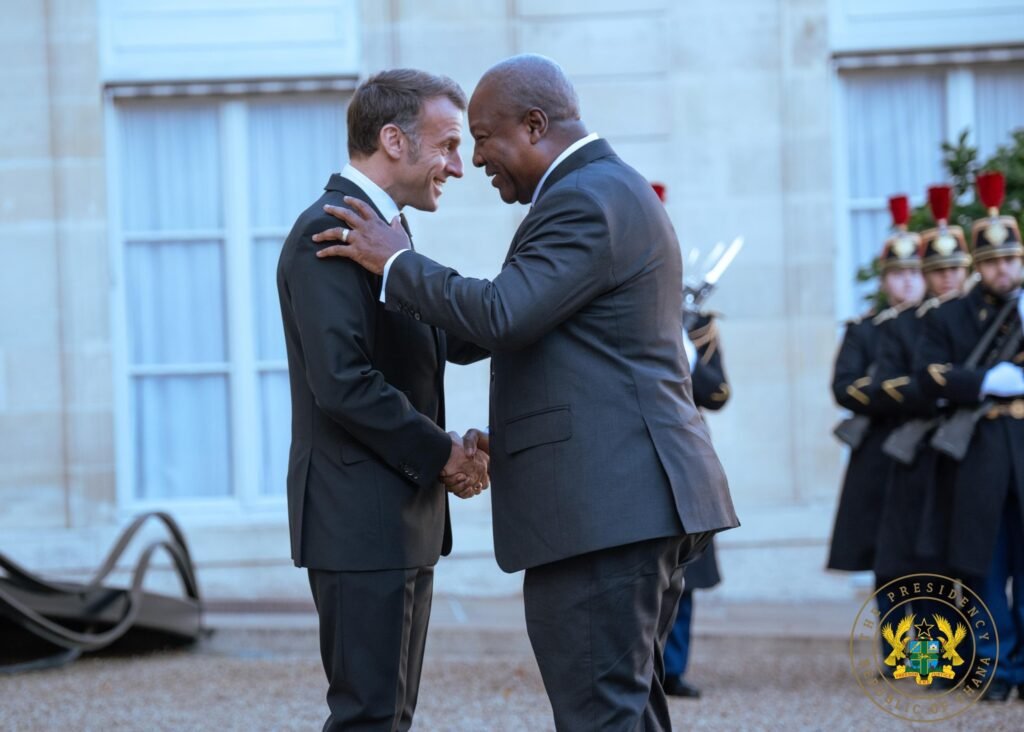
He mentioned upcoming international events such as the VivaTech Summit in Nairobi in May 2026, where Ghana could showcase its digital innovation capacity, the African Union–European Union Summit in Angola, and the June 2026 G7 Summit, during which France intends to advocate for increased support for Ghana and other reform-oriented African economies.
The two leaders also touched on Ghana’s leadership in the global call for reparations for slavery. President Mahama reiterated Ghana’s position that reparative justice remains a moral and historical obligation.
President Macron responded by expressing France’s solidarity with the initiative, noting that “France has already criminalized slavery and is committed to continuing the dialogue”.
He however, cautioned that any comprehensive approach to reparations must also acknowledge the complex historical context and the involvement of multiple actors beyond Western powers.
Sahel Region’s Security
Security in the Sahel region was another pressing issue on the agenda. Both leaders expressed concern over the deteriorating situation in Mali, Niger, and Burkina Faso — countries that now make up the Alliance of Sahel States (AES).
President Mahama stressed the need for coordinated regional and international responses to counter terrorism and restore democratic governance. President Macron praised Ghana’s stabilizing role in the subregion, commending President Mahama’s leadership and Ghana’s diplomatic engagement through ECOWAS.
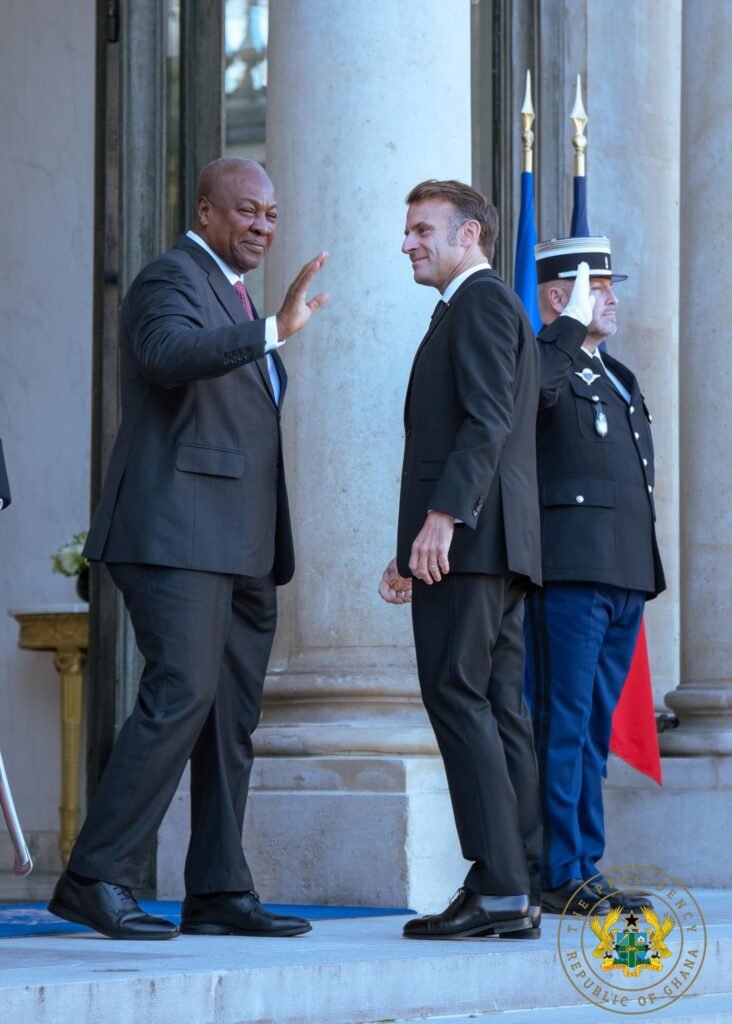
President Macron concluded the meeting by reaffirming France’s support for Ghana’s development agenda, describing the country as “a reliable partner and a pillar of stability in West Africa.” He pledged to continue working with President Mahama to deepen bilateral ties in security, trade, culture, and education.
The talks at the Élysée Palace, held alongside the broader Paris Peace Forum, mark a renewed phase of Ghana–France cooperation built on mutual respect, pragmatic engagement, and a shared vision for peace and prosperity across Africa.
READ ALSO: Support Price Stability with Growth Policies – Prof. Quartey

